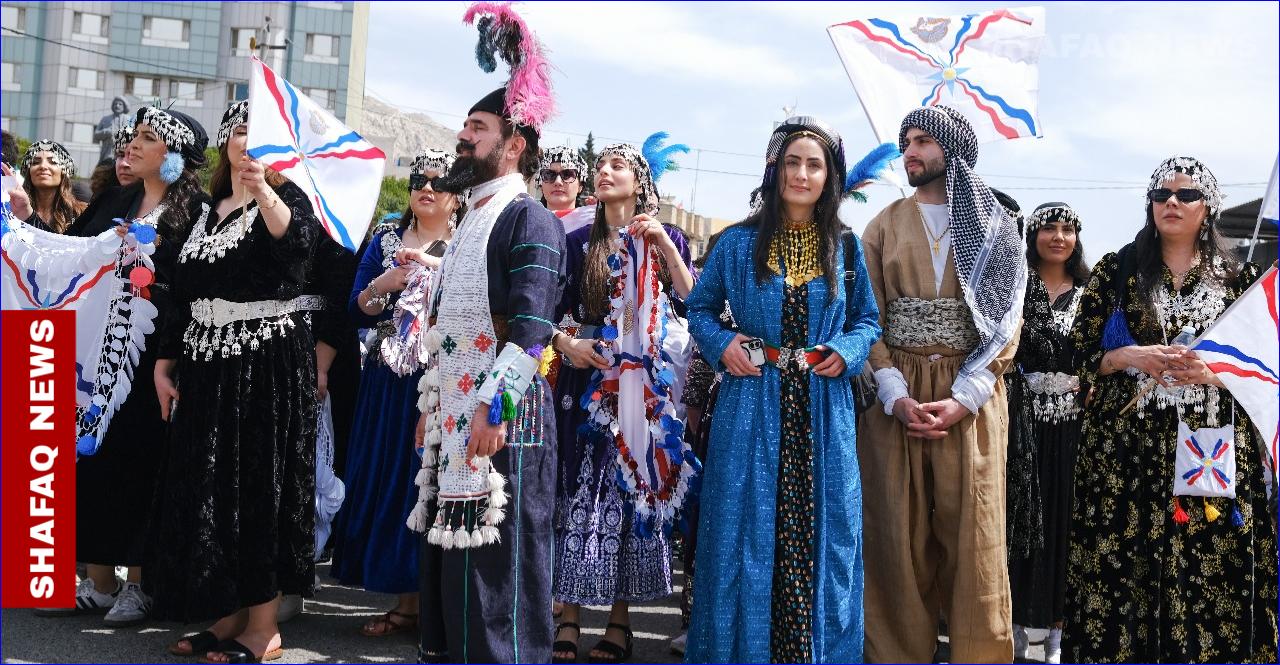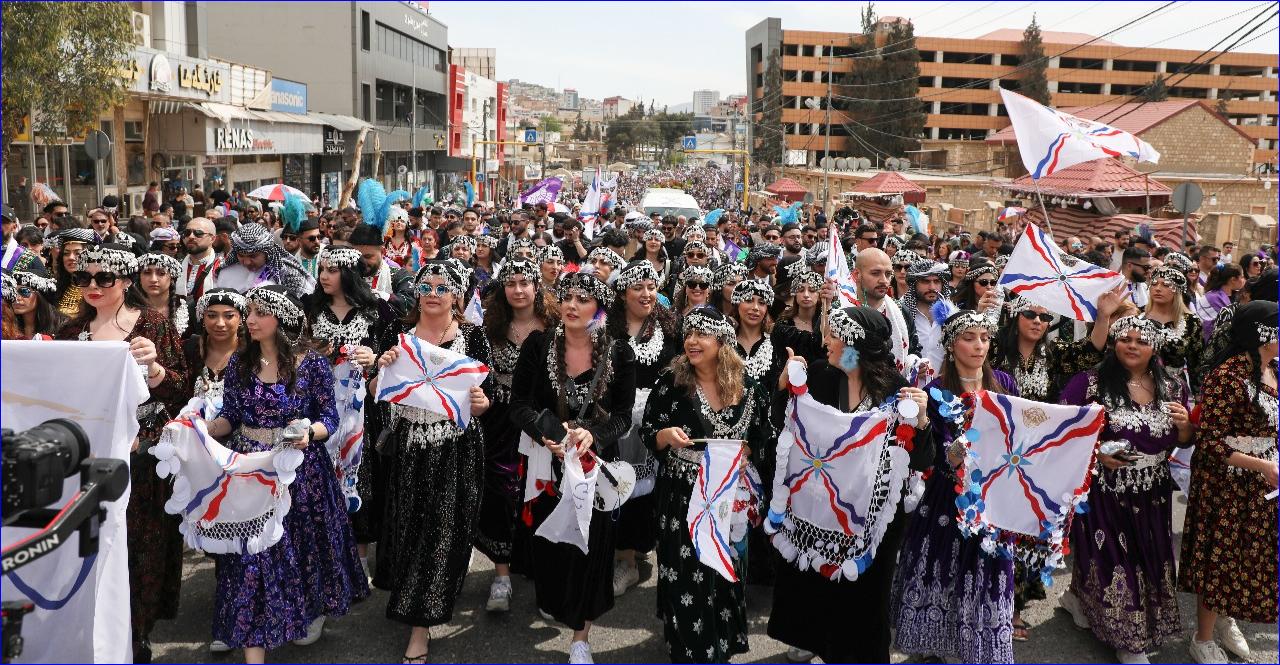


The festive procession kicked off in front of the "Virgin Mary" Church in downtown Duhok, with participants marching along the main street to the celebration venue at the Mazi complex. During the march, attendees waved flags and banners in celebration, while performing traditional folk dances in the streets, proudly showcasing Assyrian heritage and customs.
Ninos Odisho, a member of the organizing committee, noted that over 5,000 Christians from the diaspora took part in this year's celebrations, explaining that the event aimed to send a clear message to local governments and the international community that Assyrians remain rooted in their homeland. "Any attempts to erase their identity or deny their presence is a crime against them," he stated.
Odisho called on the international community to "protect Christians, safeguard their rights, and ensure the preservation of their national and cultural heritage," highlighting that Assyrians continue to face significant challenges, particularly migration and political marginalization, which have led to a steady decline in their numbers.
On April 1st, Assyrians, Chaldeans, and Syriacs in Iraq celebrate the "Akitu" festival, marking one of the oldest known religious festivals in Mesopotamia. Historically dating back to the 5th millennium BCE, some believe the Sumerians celebrated it as early as the Ubaid period (5300 BCE).

The festival, tied to the renewal of the land and agricultural cycles, was named "Akitu," derived from the Sumerian word for barley. Celebrated over 12 days, it honors the creation myth and the resurrection of the god Marduk, symbolizing the restoration of life and nature. The festival is still referred to as "Rēš Šattē" by Iraqi Christians.
In a congratulatory message, Kurdistan Region President Nechirvan Barzani considered Akitu "a historic occasion for a valuable civilization, with deep cultural and human roots from one of the oldest components of our region, which have contributed since the dawn of history to the development of the region's civilization and the preservation of its diversity."

or register to post a comment.